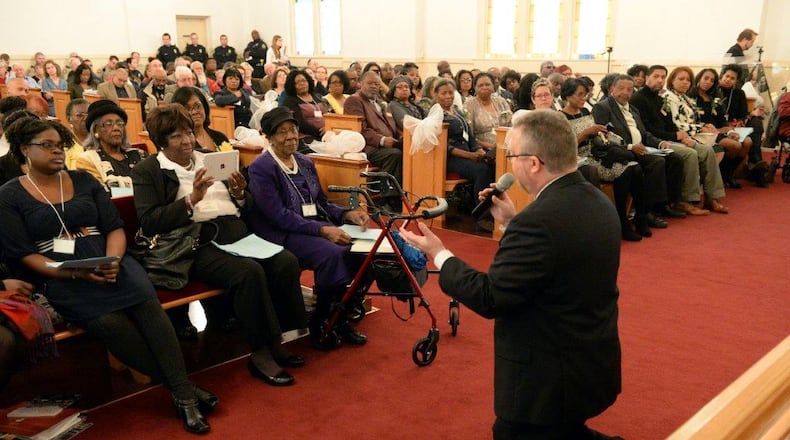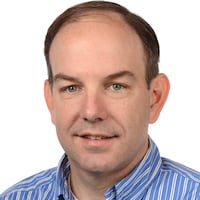They spoke at the dedication of a historical marker acknowledging several lynchings in the area. Their apology comes nearly two months after the white police chief in LaGrange, Lou Dekmar, apologized for his agency's role in Callaway's murder in 1940.
The service Saturday at Warren Temple United Methodist Church, an African American church, included apologies directly to members of Callaway's family and other descendants of lynching victims who were in attendance. It was a powerful expression of remorse and contrition for the failings of past church leaders and their congregations.
Callaway was taken from the city jail by a group of masked white men and shot in a rural area of Troup County. The police department failed to protect him at the jail and never investigated the crime.
Rev. Cade Farris of First Baptist Church, a prominent white church in downtown LaGrange, apologized directly to Callaway’s family on behalf of those who knew what was happening in society seven decades ago but said nothing. He also acknowledged others who carried out acts of terror in the community had ties to white churches.
“I want to apologize on behalf of those that filtered into churches in Troup County on Sunday hearing God’s word and during the week committing hatred, terror — God have mercy,” he said.
As he prepared for the service Saturday, Senior Pastor Greg Brown of Western Heights Baptist Church last week visited the grave of Henry Gilbert, another lynching victim memorialized on the lynching marker. Gilbert was a successful black farmer in Troup County and father who was shot fives times while in custody in a nearby jail.
His family members travelled from as far away as Chicago and Detroit to attend the service and participate in the dedication of the marker that includes his name.
“We look into the grave and we ask: What kind of people were we? What was in our hearts?” said Brown.
Deborah Tatum, a family member of Callaway, said these stories will now be known and shared with future generations. She grew up in LaGrange and did not learn of her relative’s killing until the past couple years. Saturday’s event was part of a racial reconciliation effort in Troup County.
“We’re going to speak their names today and from this day forward we’re going to tell the stories to our families,” she said.
About the Author
Keep Reading
The Latest
Featured




